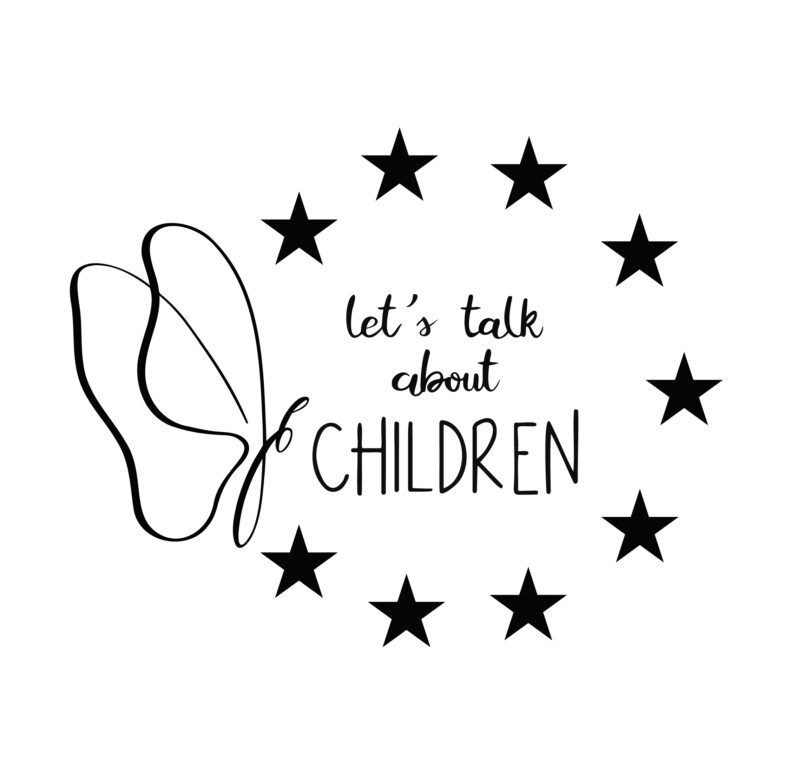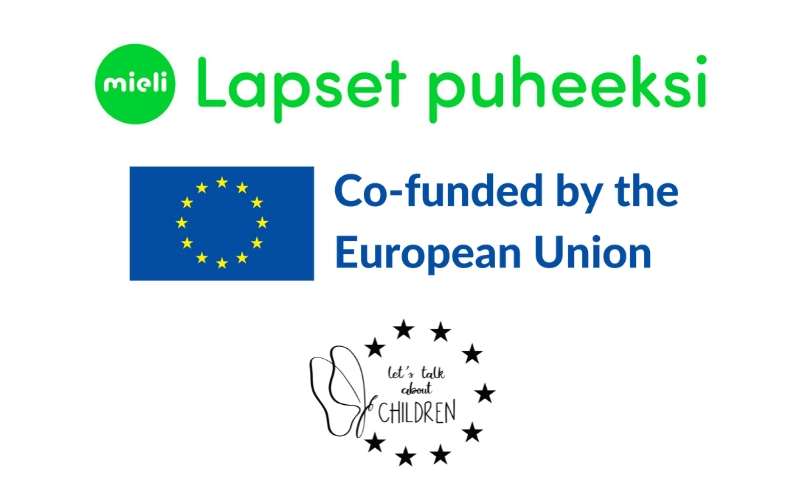Let's Talk about Children
The aim of the Let´s Talk about Children (LTC) -intervention is to build a shared understanding between parents, the child and other important persons in the child´s life and to find ways of working together to promote wellbeing and prevent problems.
A crucial goal of the Let’s Talk about Children intervention is to make the child´s everyday life as good as possible at home, in early childhood education, in school and leisure environments (so-called development environments), considering the child´s specific needs and life situations.

Let´s Talk about Children intervention
The Let’s Talk about Children (LTC) model is a structured although flexible way of talking about the everyday life of the child at home, in early education or school settings and leisure time, and to find ways to build resilience. The process is based on log books (see below).
The LTC intervention is a two-step model: 1. the LTC discussion and 2. the LTC network meeting.
The first step of the LTC intervention
The LTC discussion – usually conducted in one or two sessions -depicts the child´s ordinary day in all developmental contexts and an action plan is made with parents to enhance the identified streghths and to give support in vulnerabilities.
When LTC is carried out in early education or schools the child may participate, when LTC is used in services of different kind, the work start with the parents.
The second step of the LTC intervention
When the action plan is difficult to carry out without further participants, the LTC network meeting is planned with parents (and sometimes also the child). LTC network meeting provides a forum for case-based cross-sectoral collaboration, including also the families and their social network.
The LTC intervention is implemented in two kinds of environments
LTC in adult and child services
- The LTC intervention in adult health and social services takes as a starting point the issues that bring the parent to seek help in the services. The LTC offers parents an opportunity to reflect on the family situation and to find ways to support the child in the everyday life of the child (an action plan)
- In child services, the LTC is used to deepen the understanding about the child´s and family´s everyday life and current situation and aim at providing support for parents.
- When the everyday life of the child needs more support, the discussion continues into creating network around the child and their family (the LTC network meeting).
LTC in early education and school settings
- the LTC is used to build a comprehensive understunding of the child and his/her situation in everyday life, and to plan action based on the understunding. LTC is a tool for both the parents and e.g teachers. The aim is to build a collaborative realtionship based on respect and mutual support.
- When the everyday of the child needs more support, the discussion continues into creating network around the child and their family (the network meeting)
Building the Let´s Talk about Children service model
Through the systematic implementation of the LTC in a local setting it is possible to build an LTC service system model to overcome the fragmentation of services and lack of common goals – a usual obstacles for intergrated approaches in health, social and educational services.
An infrastructure for collaboration, decision making, monitoring, training and feedback is established, embraising health, social educational services and other stakeholders.
The first results of such a LTC service model are promising, showing an appreciable decrease in referrals to child protection services, although further research with longer follow-up and across other municipalities is needed.
Read more about the Let’s Talk about Children intervention:
The LTC logbooks
The logbooks provide a structure for the discussion, they are not questionnaires. The logbooks for wide range of welfare, social and health care services will be published in English later. Logbooks for primary school, lower secondary school and day care are available.
Logbooks for services
The EU project, Let’s Talk about Children, has created logbooks for services in English. The logbooks can also be used in Finland, but please note that they are not exactly the same as the logbooks for services in Finnish.
Logbooks for families
Logbooks for practitioners
Contacts
tlp@mieli.fi

